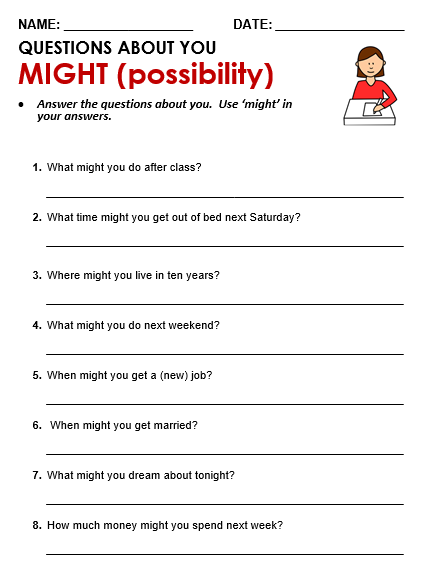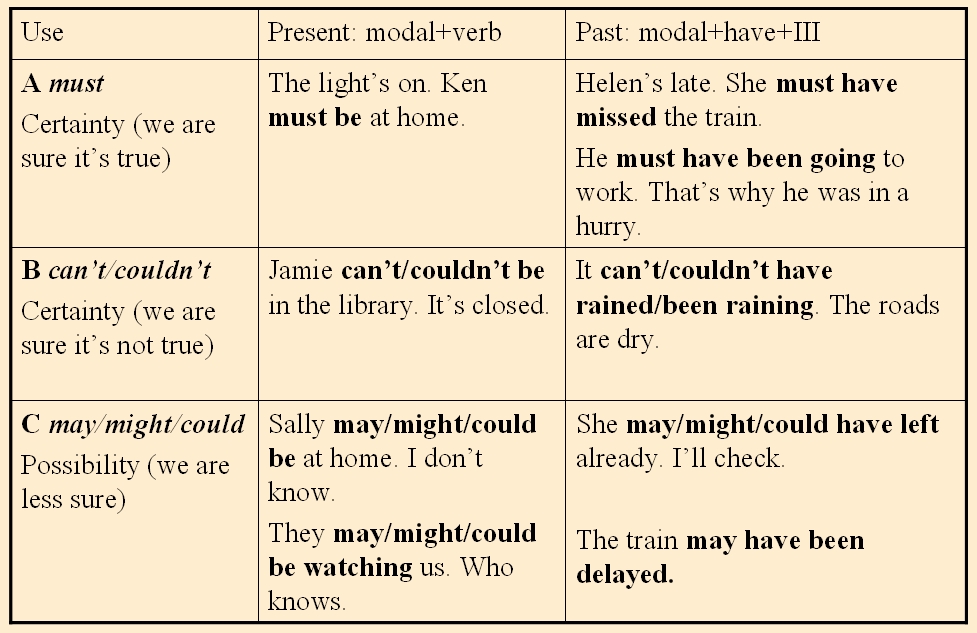
Modal Verbs for Expectation Present/Future Expectation The country is sure to come to the aid of its ally.Engineers are certain to develop even faster computers.Two slightly more formal expressions that can be used for talking about the future with certainty is saying that something is certain to happen, or is sure to happen: The kids will definitely be thrilled when we tell them we’re going to Disney World.She ‘s definitely going to love this book – it’s by her favorite author.When you are quite sure that your prediction is correct, you can also add the word definitely to emphasize your certainty: As you learned in the lesson about future tenses, we can use will or going to for saying what we believe will happen in the future. Making deductions about the future is the same as making predictions. “Great! It _ been better!” Certainty about the Future They _ bought a house without a loan because they had no savings. She _ been happy when she heard the good news. I _ left my phone at work I made a call on the drive home. The thief _ gotten in through the window.

For each one, fill in the blank with must have (if you think it happened), must not have (if you think it didn’t happen) or couldn’t have (if you think it’s impossible). You’ll see five pictures accompanied by sentences. (we know it was IMPOSSIBLE for her to do it) The printer’s been broken for the past week, so she couldn’t have printed out the report.(we draw the conclusion that she did not do it) I don’t see the report here – she must not have printed it out.Here’s an example that illustrates the difference between must not have and couldn’t have: But Eric couldn’t have reached the cookies on the top shelf he must have asked his older brother to get them.Ĭan’t have is also possible, but it is much less common than couldn’t have. Martha couldn’t have takenyour notebook she wasn’t even in class yesterday.When we are certain that something was IMPOSSIBLE When we draw the conclusion that something did NOT happen There was one banana left, but now it’s gone.She must have spent a lot of time in the sun lately. When we draw the conclusion that something DID happen


When we consider some present evidence and draw a reasonably certain conclusion about what happened in the past, we use must have and couldn’t have plus the past participle of the verb. For each one, fill in the blank with must (if you think it is true) or can’t (if you think it’s not possible). (we are very certain he is NOT a policeman)Ĭarla works every day from 9 AM to 5 PM. (we are very certain, because of his uniform and what he is doing) For example, if you see this guy, you can say:


 0 kommentar(er)
0 kommentar(er)
